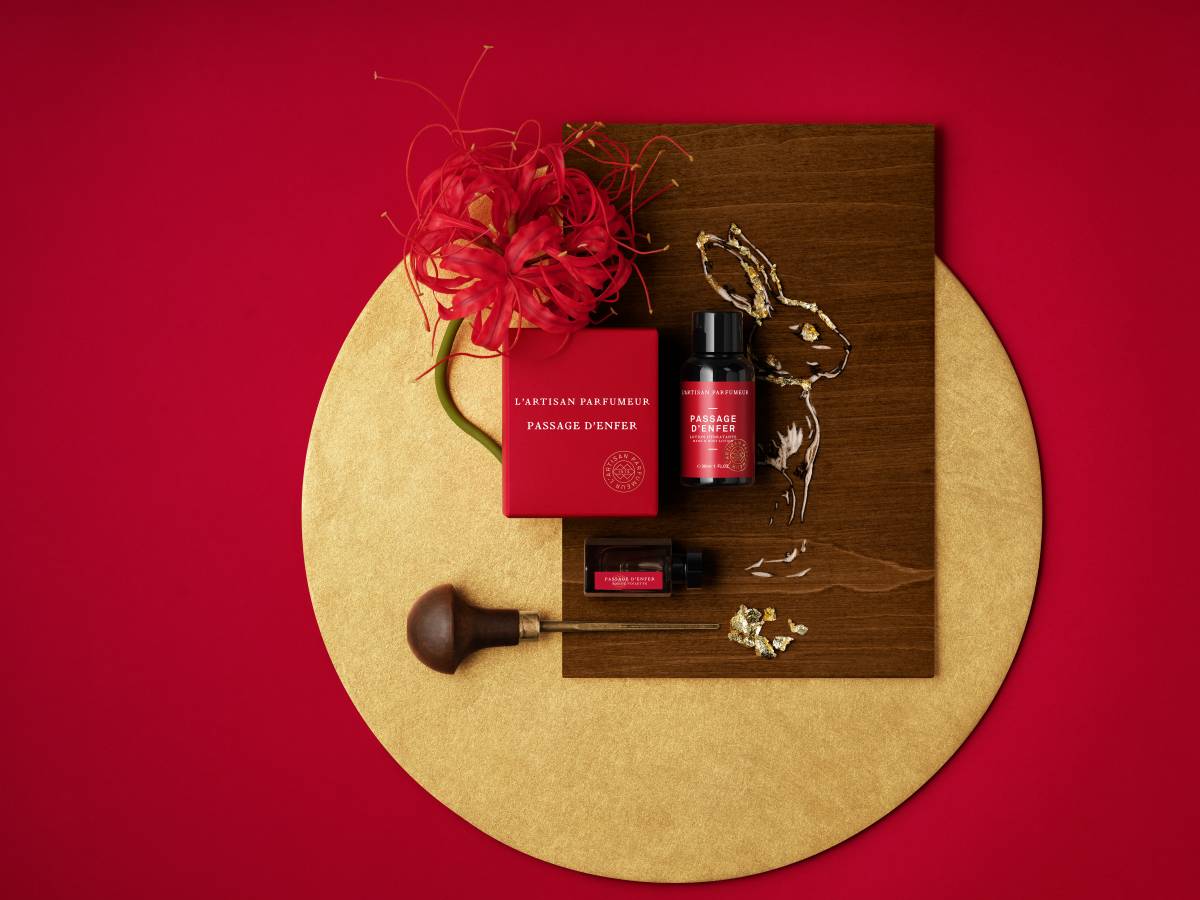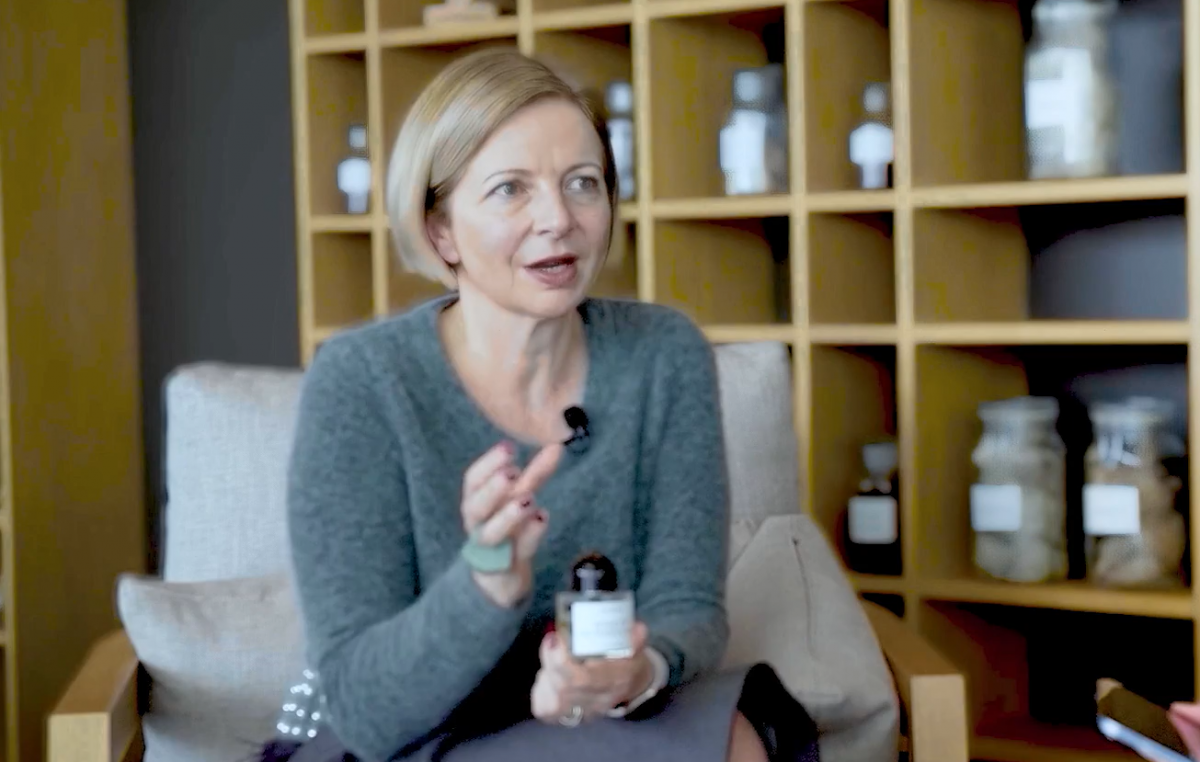Fragrance giant Puig is on a tear in China, intent on capturing a slice of the world’s fast-growing markets in scents.
Puig has been investing in local partnerships, opening points of sale and upgrading its user experience in the world’s largest e-commerce market.
Camila Tomas, Puig’s head of global innovation and new technologies, said the Catalan company’s motives were twofold: growth and trend spotting.
“China is very important for Puig and for the whole industry. Why? Because the most exciting developments and the biggest area of growth is China,” said Tomas during an interview at Puig’s headquarters in Barcelona.
China has led the world in retail innovation, scaling channels such as e-commerce and livestreaming faster than elsewhere. Major retailers worldwide maintain at least a toehold in China to stay abreast of the industry’s evolution and potentially export ideas to other markets.
Then there is the sheer pace of growth in China. Fresh data from market researcher Euromonitor International gauges the compound annual growth rate of China’s $2.4 billion fragrance market at 16%, on track to hit $3.1 billion by 2025; that’s five times faster than the global rate, albeit from a lower base.
There is not a board meeting where China is not on the table for one reason or another
Founded in 1914 by the Puig family, the company has amassed a stable of fragrance brands, including Paco Rabanne, Carolina Herrera and Nina Ricci. Last year, the company commanded a 10% share of global prestige perfume sales, up from just 3% 20 years ago.
As the next chapter in its development, Chairman and CEO Marc Puig has set expansion in China as a priority.
“There is not a board meeting where China is not on the table for one reason or another. So, we are all very focused on what happens in China, what China needs, and what we learn from China,” said Puig’s Tomas.
Top Line Boost
Puig’s investment in China is already boosting the Catalan company’s top line. Net revenues generated in China jumped 36% in 2022, even during the pandemic. That’s a significant number when considering Puig is already one of the world’s largest fragrance companies.
Family-owned Puig is arguably more open to long-term investments in emerging markets than public companies that are answerable to investors at every quarterly earnings call.
Marc Puig, the third-generation scion of the Puig family owners, said China is one of his company’s 10 biggest markets in terms of sales. But he thinks Puig’s China business is just getting going, judging from his comment to the Spanish press in 2021, that it wouldn’t be long before China entered the group’s top three markets. He predicted at the time that his company would make a quarter of its revenues by 2025 from sales in China and to Chinese travelers in other markets.
Puig has been laying the foundations for such growth for several years, getting to know the market – from the inside. In 2021, Puig invested in the Beijing-based perfume brand Scent Library.
In a separate move, Puig partnered with Alibaba Group’s digital marketplace Tmall earlier this year because, in the words of Tomas, Tmall is the most important player in China, both in terms of search and commerce, and well-versed in Chinese consumer trends.
“We know how to make fragrances, but we don’t have the insights on the Chinese consumer. And in my experience, what has been incredible is how consumer-centric and data-driven Tmall is,” said Tomas, who has worked in the perfume industry for over two decades.

Finding Your Niche
Within the Chinese fragrance market, one of the fastest-growing subcategories is niche perfumery. Keeping his eye on the prize, Marc Puig has targeted a 20% global market share in the niche perfume category, with China as a growth driver.
Puig’s niche brands, such as L’Artisan Parfumeur, Penhaligon’s, and Byredo, are gaining traction in the market. Penhaligon’s and L’Artisan Parfumeur opened points of sale in China last year.
These brands’ niche scents can range from Byredo’s Rose of No Man’s Land, which resonates with the traditional popularity of fresh florals in China, to the incense and tonka bean notes of Penhaligon’s The World According to Arthur.
The world of perfume has a lot to learn from consumer trends in China said Tomas, particularly in terms of the shift towards niche brands and personalization. Tomas sees Chinese consumers’ desire for scents that speak to their unique personalities as a precursor to being able to tailor scents to order.
“China is evolving very fast,” she said.
Below is a transcript of this video, edited for clarity and brevity
Alison Tudor-Ackroyd: Perfume is a booming business in China. Just 5% of China’s 1.4 billion people wear perfume. But that is changing fast. A new generation of shoppers sees fragrance as a way to express themselves and are seeking out niche brands, unisex fragrances, as well as mainstream classics.
The perfume market in China is growing three times as fast as other major markets. So making it easy to shop online is key to success for perfumers in the world’s second-largest economy. China’s Alibaba Group teamed up with Spanish beauty and fashion brand Puig to help demystify choosing a perfume online and help Chinese consumers discover the scent that works for them. We spoke to Puig’s Camila Tomas, head of Global innovation and New Technologies, about the partnership.
Alison Tudor-Ackroyd: How quickly is e-commerce changing the way that brands retail perfumes?
Camila Tomas: E-commerce is changing very fast. Everything, and particularly when COVID happened, it accelerated the transformation. So, if in general, the industry was at 15% to 20% e-commerce levels on scents, now we are above 30% for many players. And one of the challenges of e-commerce is because I don’t understand the category, as a consumer, and I cannot try, I’m not sure what to buy.
Alison Tudor-Ackroyd: How can Puig’s scent visualizer help consumers discover new perfumes?
Camila Tomas: First of all, it creates an alphabet that is very easy to understand because an image says a lot and particularly an image that I can recognize as a consumer. A perfume that has roses and woods when I visualize it, I can imagine. But also, it establishes a language that allows me to compare. If I know that I like a perfume that has roses with green and citrus notes, it’s very easy to find other products that may interest me.
Perfume is a culture that evolves with time. So, like the category of wines, we start with very simple things and we discover more complex tastes as we grow and discover products. It’s the same with perfumery. Young people or new consumers tend to enter with very fresh, very light, very simple scents and evolve over time into more complex compositions. So we have solved those problems, and China is benefiting from those new technologies because they are fostering the development of the category very fast and embracing new possibilities from the beginning. Very exciting.

Alison Tudor-Ackroyd: Tell us about China. How important is China for Puig?
Camila Tomas: China is very important for Puig and for the whole industry. Why? Because the most exciting developments and the biggest area of growth is China, number one, and digital markets, and China is digital. So there is not a board meeting where China is not on the table for one reason or the other. So we are all very focused on what happens in China, what China needs, and what we learn from China.
Alison Tudor-Ackroyd: So given the importance of China, why are you partnering with Tmall in this journey instead of going it alone?
Camila Tomas: For many reasons. The most important one is because they are the most important players in China, both in terms of search and commerce. Then, we don’t have the expertise. We know how to make fragrances, but we don’t have the insights on the Chinese consumer. And in my experience, what has been incredible is how consumer-centric and data-driven Tmall is.
Alison Tudor-Ackroyd: China is a very advanced market in terms of digital retail. What are you learning at Puig from the market and applying elsewhere in the world?
Camila Tomas: It’s interesting because China is evolving very fast, and there is a key preference of the Chinese consumer that impacts that evolution, which is the pleasure of expressing yourself. So, where China started growing the category with traditional leading blockbusters, now we see a fast growth of niche brands that bring a broad portfolio of scents.
For example, some of the leading brands in China happen to be from Puig, such as L’Artisan Parfumeur, Penhaligon’s, or Byredo. And what niche brands bring is very sophisticated, unique scents. So, for example, Byredo’s Rose of No Man’s Land is a beautiful floral fragrance with pink pepper and rose petals. And it’s a fragrance that covers a category that was traditionally popular in China, fresh florals, but other niches that are becoming very popular are very sophisticated.
For example, The World According to Arthur is an oriental woody scent that is very mysterious and dark with incense and tonka beans. So, we see that niche brands help the taste of the Chinese scent explorer evolve very quickly from easy scents to very mysterious, complex, personal scents. Another thing I believe we’ll see coming out of China and leading the way is the desire for personalization because niche brands are a precursor to being able to personalize, as they are very focused on a single ingredient. Many of them are named after the leading notes, like the No Man’s Land, and the combination of scents starts making very interesting personal scents.
Alison Tudor-Ackroyd: So that’s definitely a trend to watch.
Camila Tomas: Absolutely. I think personalization will start in China. Yes, we have our eyes on it.
Alison Tudor-Ackroyd: Thank you so much for your insights.
Camila Tomas: Thank you very much. It has been a great pleasure exchanging with you.
Read more about the perfume market in China here




